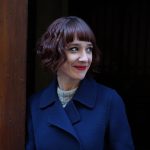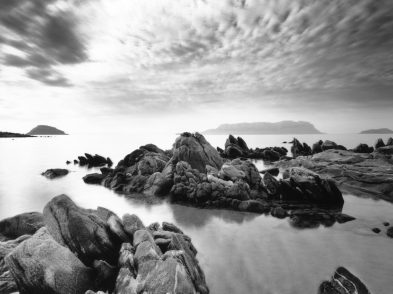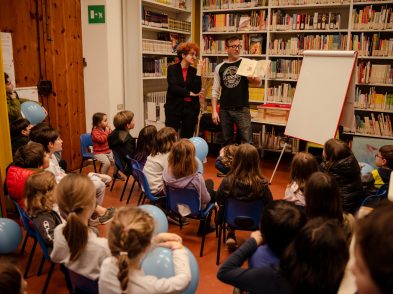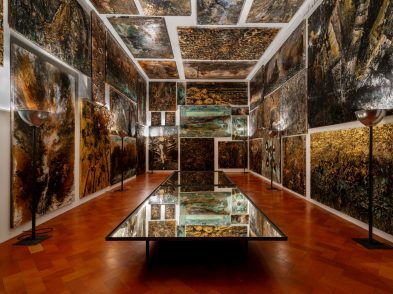A Ukrainian family fled the war and found themselves in a castle in Tuscany. This was what Madison Kinsella found out through a friend, prompting her to pull together a film crew within 48 hours and head to Castello di Ristonchi in the Reggello countryside, having only three days to record their story. We speak to Madison and castle owner Stefanie Grassley to learn more about A Castle for Kyiv.
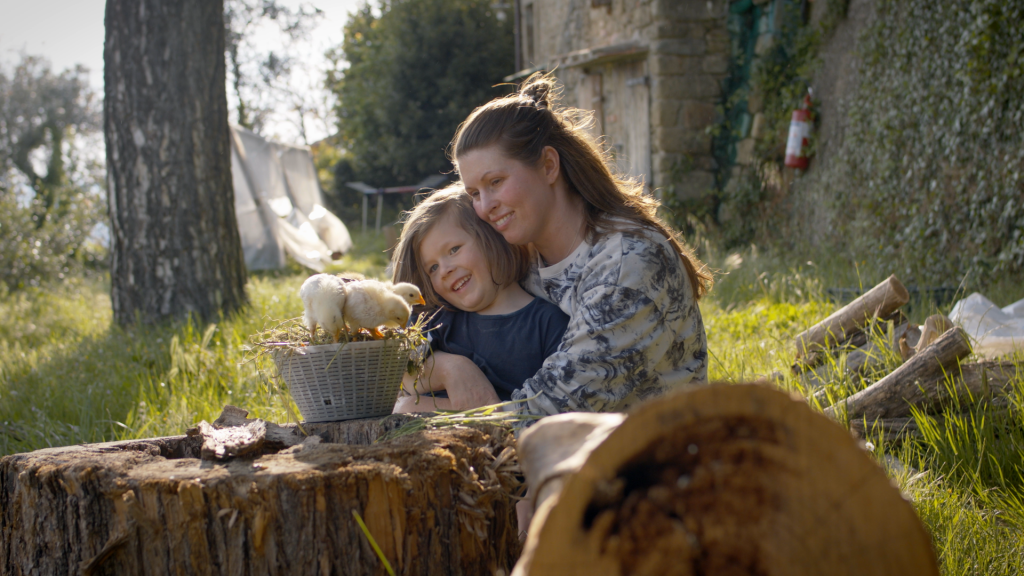
How did you come across this story?
Madison Kinsella: My good friend Christina Tompkins reached out to me in March 2021. She told me about a friend of hers from many years ago when they both lived in New York. Her friend lived in Pelago with her husband and two children at this castle where they run their event business. “They typically host weddings and corporate retreats, but right now, they’re doing something amazing,” Christina told me. She began to explain that her friend, Stefanie Grassley, had opened the doors of the castle (that she and her family live in) to anyone fleeing from Ukraine. Once Stefanie and I had a dialogue going, she informed me that almost all the Ukrainians were going to be leaving the castle for a myriad of reasons in a little over a week. Once I learned that, I quickly made phone calls and arrangements to fly from New York to Italy immediately. Time was not on our side. I had all of two days to prepare. I kept telling myself, if this comes together in time, it will be a miracle, and that’s exactly what it was: a miracle. Three days after Stefanie and I had first met via email, I was pulling up to the castle for the first time with my crew. It was a complete whirlwind and I feel so lucky to have captured their story in this film.
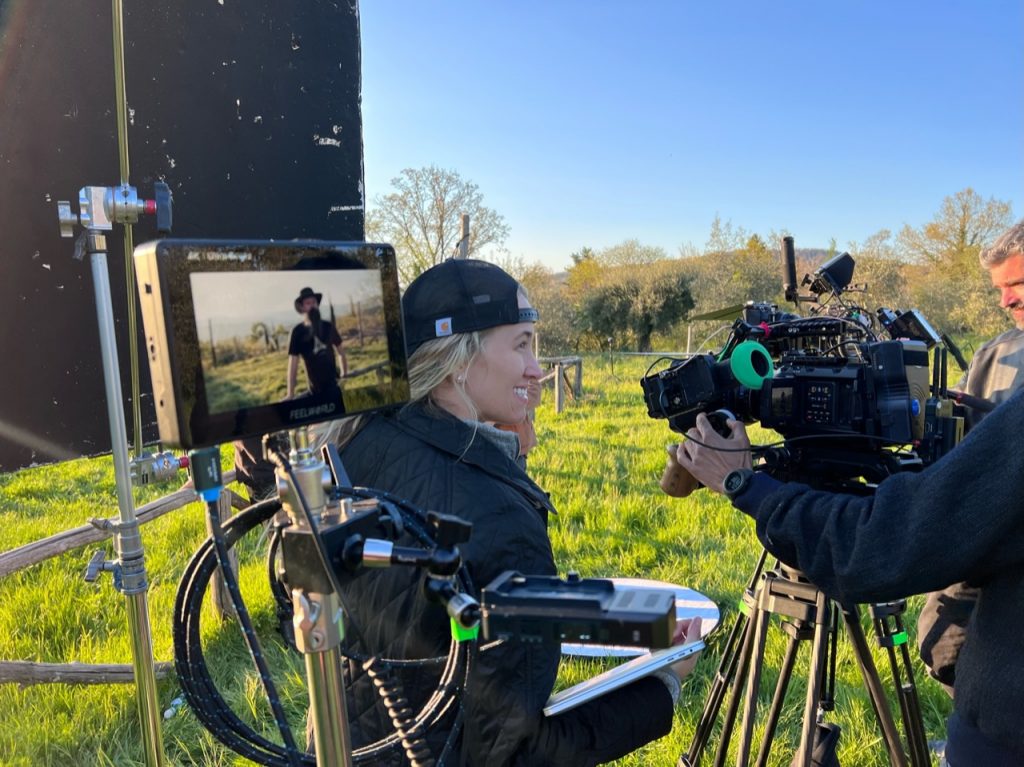
What was your goal with A Castle for Kyiv?
Maximum exposure. I feel as though in today’s news cycle on social media and the general internet, there’s a constant stream of terrible news because, the truth is, terrible things happen every single day. On the flip side of that, wonderful things happen every single day too. I want people to know that when you’re merely a spectator to terrible things, you don’t have to be. There’s always a way to help others. Sometimes it may require immense courage or overcoming your own fears, but if it means helping somebody and potentially changing their lives, do it. Summon the courage, face your fears and do it.
Any stand out memories from the experience?
The kids were a massive highlight for my crew and I. We were all stunned by their awareness of the war, and why wouldn’t they be? It’s happening to them. It’s their lives, their families. But I think we often forget that, in the midst of war, children are present. Children are sponges. They absorb everything and we were really able to grasp that this was a moment that would change the rest of their lives. It’s not often you get to bear witness to that. It was both inspiring and heartbreaking to witness their strength within their own awareness and acceptance of the war.
Another moment that comes to mind is when we interviewed Alexander “Sasha”, grandfather to Amalia (eight years old) and stepfather to Olga. He was able to leave Ukraine due to medical exemption. He shared with us his experience of being a former militarian when Ukraine and Russia fought as one under the Soviet Union Military, before Ukraine became independent in 1991. He told us the disappointment he felt in his friends who lived in Russia and supported the war. “There is no word in any language to express the sadness I feel,” he told us off camera. My crew and I knew that we needed to be strong for everyone we spoke to, keep our emotions at bay, and just support them the best we could. But by the end of Sasha’s interview, we were all in tears.

What has the response to the film been like?
So far, it’s been positive. My goal was to make viewers feel as though they know the families from Ukraine, as well as Stefanie and Rasmus. As if they were not just faces on the news, but people you know and that Ukraine wasn’t so far away. Based on each audience’s reactions, I feel as though this has been accomplished. The film has been shown at a few small festivals around the world, and I hope we continue to get the word out as much as we can before our public release of the film.
What drew you to Tuscany?
Stefanie Grassley: My husband Rasmus Palmqvist is Danish and we were living in Copenhagen for a few years. After the birth of our children, we were ready for a different lifestyle and had always dreamt of creating a place where people could come together from around the world and celebrate the good things in life. One day, we sat down and Googled, “castles for sale”. Google suggested we add “Italy” to our search, so we did. A few minutes later we came across Castello di Ristonchi and knew it was the one. It was a beautiful location on a hilltop surrounded by olive groves and forests. We knew the adventure was going to be hard, but we had no idea what was in store for us!
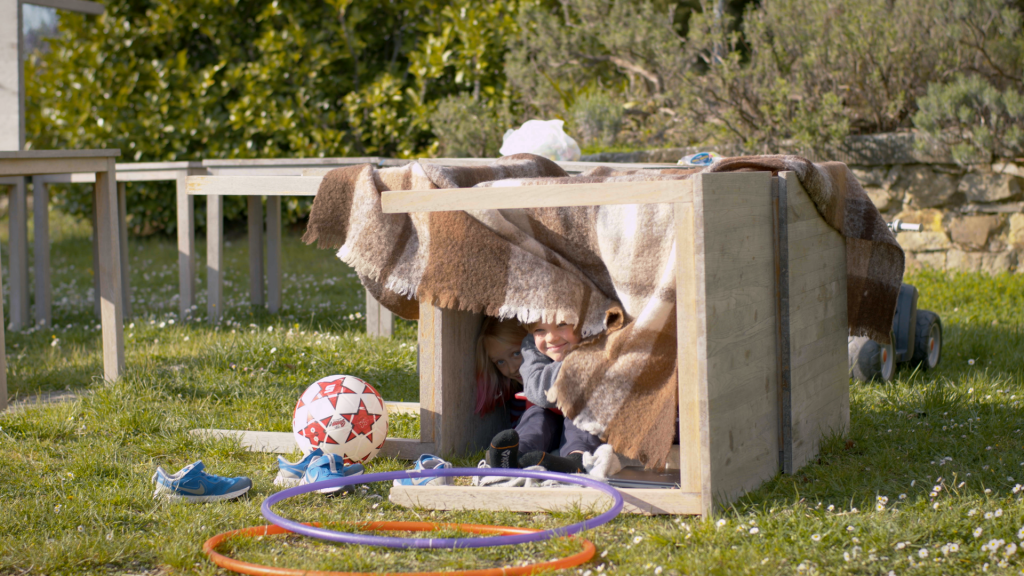
How does it feel to share your home with those escaping war?
At the beginning, the emotions were enormous. Some nights I was staying up until three or four in the morning waiting for families to arrive. Mothers and their young children would arrive with nothing but their trust that we would help keep them safe, warm and fed. These women were so brave and had to place their faith in complete strangers. We didn’t have any staff at the time, so I was cleaning all the apartments, doing all the laundry and constant communication with the families by myself. After a few weeks, we were full and couldn’t welcome any new families. At that point, things started to feel more relaxed for all of us. I had a friend, Jill Wagner, help with communication and logistics. She also taught Italian and English classes to the adults and children and organized other volunteer efforts. All the Ukrainians would hang out together in the sun during the day and talk together over a glass of wine at night. We celebrated multiple children’s birthdays together. Some helped in the garden, others in the kitchen. There was always a large group of children at the playground. It became a beautiful little community. Everyone was extremely grateful. I couldn’t leave my house without being hugged and kissed, and asked over to share a glass of wine or some borscht. Currently, we have three women who we hired to work at the castle and one child here who is similar in age to my children. They play together every day.
What was it like to tell your story during filming?
At the time, I was under so much stress trying to keep our business afloat as well as helping to find accommodation for the families we couldn’t host long term. I was always on the verge of tears. Their situation was so intense, the pictures and stories they shared. I felt like I needed to take care of everything, of everyone, which was impossible.
How many Ukrainian families have you offered accommodation to?
We have had over 50 Ukrainians stay at the castle. Mostly women and young children, ranging from one year-old twins to 13 year-olds. Most stayed for months, some only needed a few nights’ stop along their journey, so they didn’t have to sleep in their car again and some have been here for over a year.

